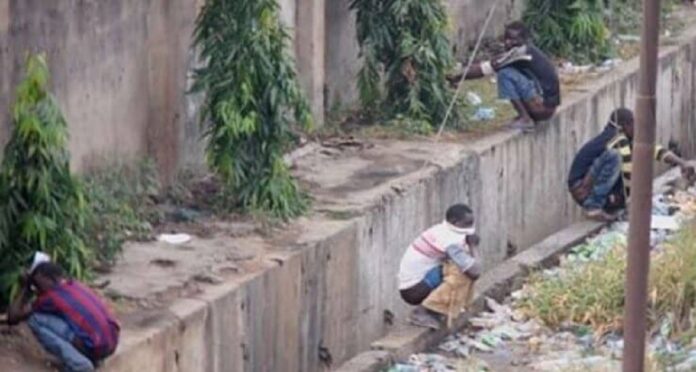Minister of Water Resources, Suleiman Adamu, has expressed optimism that Nigeria will end open defecation practice by 2025.
Adamu gave this assurance at a Ministerial Press Briefing to mark his one year re-appointment in Abuja on Wednesday.
He noted that although, only 27 out of the 774 local government areas were open defecation-free (ODF), “10 more LGAs are awaiting certification as they have met all ODF protocols’’.
According to him, more local governments would have been declared ODF, if not for the event of COVID-19 pandemic that slowed down the processes.
He said that with the recent collaboration with the National Orientation Agency (NOA) in its sensitisation campaigns, the message of building and using toilets would soon spread.
The minister pointed out that the overall impact of promoting sanitation and hygiene was for the benefit of all, adding that there might be minimal challenge with strict compliance to cultural beliefs and norms.
“Recall we had only one local government that was open-defecation free in 2017.
“As we are talking now, we have 27 councils and I am aware that 10 more are awaiting certification.
“The key thing is that once this campaign catches us, it will spread like bush fire,’’ the minister said.
According to the minister, sanitation is everybody’s business and it is an individual thing and everybody knows the benefits of good sanitation and hygiene practices.
“Where we may have challenge may be with communities that have cultural ties to certain practices and once we can break these taboos, we will move forward.
“Some states are slow, some are very active than some, but we are confident that we will get there.’’
He said that the ministry had strengthened its partnership with the Federal Ministry of Environment towards overall hygiene promotion in the couintry.
Speaking on his scorecard in the last one year, Adamu said the relevance of water to national development “is very pivotal to population growth, urbanisation and increased efforts at agriculture and industrial development’’.
He said the Water and Sanitation (WASH) Action Plan, launched by the President in 2018, encapsulates a 13-year revitalisation strategy with the central aspiration of “ensuring access to water and sanitation for all” by the year 2030 through a strengthened federal/state partnership.
Part of the achievements of the ministry, according to him, include completion of 34 water supply projects, construction of 159 rural water supply schemes in the North-East, IDP camps and some federal institutions and establishments.
He added that the action plan started with the Partnership for Expanded Water Sanitation and Hygiene (PEWASH) programme.
Through the programme contracts were awarded for the construction/rehabilitation/upgrading of 895 water supply schemes in 10 states, he said.
The benefiting states are Imo, Katsina, Jigawa, Plateau, Zamfara, Sokoto, Ondo, Osun, Delta and Bauchi.
“We initiated Inclusive Basic Service Delivery and Livelihood Empowerment Integrated Programmes (IBSDLEIP) for the provision of emergency water supply for North-East, supported by African Development Bank.
“We also initiated the Nigeria Sustainable WASH sector programme for 100 per cent sustainable WASH coverage in participating states with support by the World Bank (under preparation).
“By these efforts, additional 2.4 million Nigerians have gained access to water supply in the last 12 months,’’ he explained.
The minister said that part of its target, before the end of the 2020 fiscal year, was to see how states would be encouraged to flag off their own version of the ODF campaign.
He said that plans were underway for the development and passage of a bill for an Act to prohibit urination and defecation in the open.
“With more collaboration with the media, private sector and CSO’s, implementation of the WASH Action Plan and ODF campaign will be successful,’’ Adamu said.







